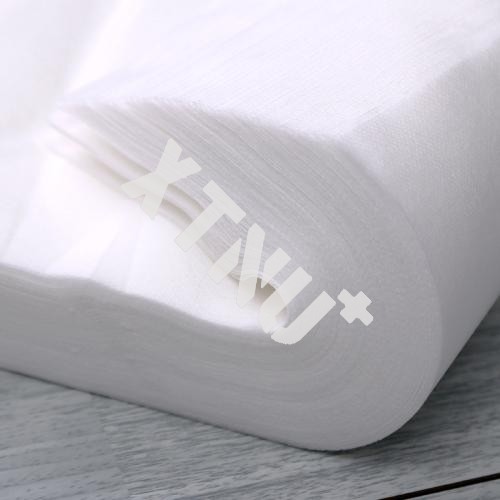characteristics of non woven fabrics
The important thing for polypropylene nonwovens to grow in a flexible way is that it uses synthetic polymers as raw materials. This method dominates the chemical fiber spinning affair, and it continues the filaments in the process of polymer spinning, and is directly bonded after the spinning process. Into a non-woven fabric, the production of the preparation is very simple and fast, and the dry process of non-woven fabric processing technology, eliminating the fiber curling, cutting, packaging, transportation, assimilation, combing and a series of cumbersome core process, this type of continuation, The most significant production of a large amount of production is to make the cost of the spunbonded products drop, the same quality, the strong market competitiveness, and the market size of textiles, papers and films that can be used in all kinds of disposable and durable applications. in. Secondly, due to the large number of operations of polypropylene in spunbonded nonwovens as an important raw material, it has a lot of advantages in terms of price, processing, and production costs, and it also greatly enhances the continued growth of spunbonded nonwovens. In addition, the mechanical properties of the spunbonded non-woven fabrics are excellent, and their tensile strength, elongation at break, tearing strength and other indicators are all superior to those of dry, wet, and melt-blown non-woven fabrics, especially in recent years. Sticking to the active growth of the scale of the production line, craftsmanship and equipment, as well as the product market, greatly expanded the scale of operation of spunbonded nonwovens.

characteristics of non woven fabrics
The biggest difference between spunbond production process and chemical
fiber spinning is the use of air drafting and direct web formation. It
is a problem of focusing on craftsmanship with the drawing of the
spunbond method. In the past, drafting was performed using mechanical
drafting. Monofilaments are thicker and unevenly laid. At present, all
the spinning and viscous production equipment of the world have adopted
air drafting technology. Due to drafting of air drafts, there are three
types of disagreement in the production of spunbond production lines:
tubular drafting, wide slit drafting, and narrow slitting. Extend and
wait.
characteristics of non woven fabrics
The spunbonded non-woven fabrics technology has always been to
mention the ability to cross the production line and solve the problems
of the uniformity of the non-woven fabric, the decoration of the algae,
and rough handle, etc., to improve the strength and excellent
flexibility of the spunbonded non-woven fabric. , uniformity and
comfort, hygroscopicity and other properties.
Dandan Spunbond nonwoven can directly improve the flexibility and
comfort of spunbond nonwovens. However, the spunbonding process has a
bottleneck in craftsmanship. For example, fine denier can increase the
number of fibers in the spunbonded nonwoven unit area, and the
“connection point” between fibers and fibers increases. The product will
also become more uniform and the coverage rate will also advance.
-
2023-05-13
Disposable Protectiv…
Disposable Protective Nylon Be…
-
2023-05-13
Wholesale Nonwoven B…
Wholesale Nonwoven Beard Cover…
-
2023-05-13
Disposable PE pedicu…
Disposable PE pedicure liner/s…
-
2023-05-13
Disposable Blue PE p…
Disposable Blue PE pedicure li…
-
2023-05-13
XTNU Non-skid blue s…
XTNU Non-skid blue shoe cover …
